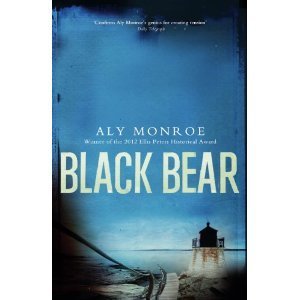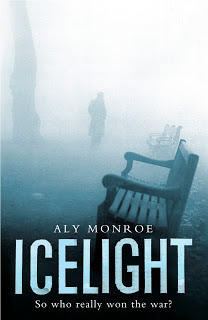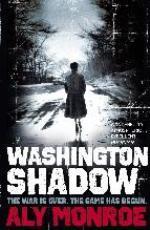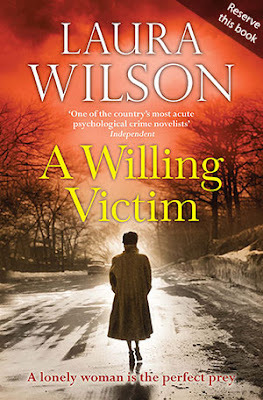Aly Monroe's Blog, page 4
January 19, 2013
'Redeemable'
Last December my editor at John Murray, Kate Parkin, asked me if I’d like to write a short ebook between ten and fifteen thousand words, to be published in April, a little more than a month before the publication of Black Bear in May. That is how Redeemable came about.I’ve just sent off the checked and edited version, a little over twelve thousand words. It concerns Cotton’s brief sojourn in Germany between July and August 1945. In other words, the story takes place between The Maze of Cadizand Washington Shadow.
While Redeemable is not of a length for much development, it concerns a curious and uncomfortable time in the BZO or British Zone of Occupation. It is generally agreed that the British Army started WW2 in poor shape; by May 1945 the troops had learnt and improved in very great measure. As one of my still-living sources put it – ‘Having got a real fighting force at last, the troops then had to be sent home.’ In the meantime, without an enemy, they found themselves relatively rich in Germany at least. They had access to cheap tobacco, chocolate and alcohol. In a defeated country with a population desperate to keep afloat, this was power. It’s not surprising that the black market flourished in all the occupied zones. There were four – the French, Soviet and US all occupied other different areas of the country.
My living sources all said they had loathed the atmosphere, which they described as ‘corrupt’ or ‘decadent’. There was also an odd innocence. One person (who had been in a tank regiment) described travelling on a ship on its way back to the UK from Hamburg as the soldiers were ordered to rid themselves of the goods they had acquired. These included washing machines and fur coats, which all went sailing overboard into the North Sea.
Of course this is not much talked about but it made me take great care over events in Redeemable. So the stand-off with some Soviets described in the story is based on fact (though it was Major against Major) and the gleaming Mercedes Benz 540K acquired by a Commanding Officer ‘for a song’ was real. Nearly seventy years on, my source gave me the CO’s name and described him as having ‘the morals of a pole-cat.’
Redeemable' will be available on 4th April - cover coming soon.
Published on January 19, 2013 01:50
December 18, 2012
Maxine Clarke
Last July I was lucky enough to speak briefly at a CWA dinner and I used some of the time to thank reviewers and bloggers, usually working unpaid, who contribute so much to informing readers of the choices available – by extension also helping writers and publishers – and who too often go unsung. One of the people uppermost in my mind was Maxine Clarke who died yesterday.
Now I only met her once – at CrimeFest in 2008 – and I am not aware she ever reviewed a book of mine. That’s not my point.
Maxine’s interests and hard work were helpful to many people. Her blog at Petrona was an object lesson in the intelligent uses of the democracy inherent in the social media. Of course it was subjective – she had her preferences and tastes – but it was civilized, generous, and proportional. Never aggressive or self-indulgent, she helped other bloggers, and many readers, with an endearing mix of scepticism and enthusiasm - scepticism of hype, bombast and over-statement, and informed enthusiasm for what she valued.
This is not at all a small talent.
I am aware, of course, of her scientific background and job, of her family and friends, but here I wanted to mark a quality that is rare – and worth praise.
Thank you, Maxine.
Published on December 18, 2012 06:41
December 17, 2012
Literature on the Loch
Last August I was invited to Ardoch House on the banks of Loch Lomond. I have to admit I’d never been there before. Yes, of course, I knew it was beautiful but I simply wasn’t prepared for it: the setting and the views from Ardoch House are breathtaking. There’s the loch, the hills to the North, but most of all an extraordinary sense of calm, an almost edge of the world magic, a sort of visual balm. It is wonderfully freeing.
I went there, together with Maggie McKernan, to meet Carlos Alba and Peter Armitage, the owner of Ardoch House. Peter is often described as a ‘businessman turned philanthropist’. In other words, he retired early ‘to give something back’. His particular interest is ‘human capital’, especially the development of young people - most of all, young people from disadvantaged back grounds. He has put some 7.5 million pounds of his own into rescuing and developing Ardoch House, and he and his family bear all the costs themselves. To help with the running he lets Ardoch out to corporate clients and that allows him to offer courses and accommodation to children based charities in the UK and abroad.
Carlos, who is a novelist himself, also helps Peter Armitage develop and promote different projects for Ardoch House - among them, photography holidays and creative writing breaks - called Literature on the Loch.
Apart from writing fiction myself, I also worked as a teacher for many years and now sometimes teach courses to foreign academics – usually research groups - working at English Universities. The aim is to help them communicate successfully with their peers but also with other non-specialists. It’s interesting, very specific work. It’s quite different dealing with an academic who grew up in Japan, from one educated in Argentina or Jordan, for example. Languages come with all kinds of baggage, conventions, and manners – and sometimes very different ways of thinking - which require a slightly different approach for each person. Teaching such a wide variety of people how to write articles that communicate their ideas and arguments clearly and successfully is quite challenging, but also very rewarding. For Literature on the Loch, I’m looking forward to combining my writer’s hat and my teaching hat – and to helping each person develop their own individual voice and style.
Since that first meeting, plans have gradually been taking shape. The first of these creative writing breaks will be at the end of March or beginning of April (date to be confirmed shortly). There will be a writing workshop each morning, most afternoons free, and each evening there will be a guest speaker who will then join everyone for dinner and chat. I will be conducting the workshops together with Maggie. The team of guest speakers will include writers Carlos Alba, Andrew Williams and Christopher Brookmyre, as well as David Robinson, literary editor of the Scotsman.
You can read more about Literature on the Loch by visiting the website, which has just been launched. http://www.literatureontheloch.com/
Published on December 17, 2012 10:07
December 12, 2012
Black Bear

This is the cover for the next Peter Cotton book, which will be published on 9th May 2013 by John Murray, and is available now for preorder from amazon.co.uk and from amazon.com.
Published on December 12, 2012 09:15
November 23, 2012
No Lady
I’ve just come across a very nice review of Icelight in this month’s edition of The Historical Novel Society. It’s always good to get a review which shows evidence that the reviewer has enjoyed and engaged with the book – even when it comes with reservations. While talking about what he kindly describes as the ‘brilliant characterisation’, the reviewer points out that some of the characters ‘use some unpleasant male language’ which he says is ‘distasteful though refreshing coming from a female writer.’ He then says ‘Aly Monroe is no lady.’
I was immediately amused by this, but it reminded me of something a long time ago. I have mentioned elsewhere that I was very much into acting when I was young – attended drama classes until I was eighteen, and even seriously considered drama school before deciding to go to university. What I remembered was this. When I was about fifteen, I was asked to choose a speech to perform from Shakespeare’s The Tempest. I knew perfectly well that they expected me to choose sweet Miranda. But I rebelled at being typecast. Instead I chose Caliban’s speech ‘This island’s mine, by Sycorax, my mother ...’ Caliban is usually portrayed as wild and deformed, between man and beast, and speaks his pent-up, imprisoned rage in wonderful, energetic, verse. I really relished this. It has often been said that one of the attractions of acting is that you can experience being something and someone else. In fact, the act of characterisation from an acting point of view means that you blot yourself out and ‘assume’ another person.
When I began writing – relatively late in life – I drew on my acting experience of characterisation to create my characters. This was familiar to me. You listen, hear the voice, see where the characters will go and how they will react. The words they speak are theirs.
The characters the reviewer referred too would certainly never have used ‘lady-like language!
Published on November 23, 2012 05:59
October 10, 2012
Paperclips and Chatter
Yesterday evening I went to The Edinburgh Bookshop, a small independent bookseller started about five years ago by Malcolm and Vanessa Robertson. They have decided to concentrate on their publisher Fidra and the bookshop has been taken over by Marie Moser. Yesterday was in the nature of a small celebration of what had been and an introduction to the new. (Marie once worked for James Thin, now Blackwells.)
There were a number of people showing support. Among others, I spoke to authors Ian Rankin and Nicola Morgan (who gave me a lift home). A couple of readers asked me who I was and certainly pretended to know my name. I enjoyed the lady who asked me why so many book covers had a solitary figure walking away into the distance on them. ‘Is it because art departments don’t have much imagination?’ I was pleased to say that the cover for Black Bear due out in May next year has no figure at all on it, though I suppose Castle Hill lighthouse in Rhode Island also tends to the solitary.
But the most surprising conversation I had was with Joanna Geyer-Kordesch. I have been doing the final edit of Black Bear. The background to the book is Project Chatter – ostensibly an effort to replace the use of torture but most famous now for experiments in so-called truth drugs or serums – and Operation Paperclip, again most famous as the process by which many scientists from Nazi Germany became US citizens.
It was Joanna, professor emerita of the History of European Medicine at Glasgow University, who brought up Paperclip. Her father, Karl Kordesch, joint inventor of the alkaline battery, whose name is on more than a hundred patents, was recruited to this operation from Austria in 1953.
In other words Paperclip carried on long after the war. We talked about the influence Paperclip had had on the development of US technology and its consequent importance in the world we know. There was of course the other side. Some of the scientists in 1945 really needed those paperclips – this being an operation that not only provided new paperclips for CVs but sometimes a new CV as well. Professor Geyer-Kordesch mentioned those who had worked on truth-serums.
My warmest wishes to Vanessa - and very good luck to Marie and the next stage of the Edinburgh Bookshop.
Published on October 10, 2012 02:05
July 8, 2012
Cutlasses and Daggers
On July 3rd last week I headed down south on the train to London for a few days. In the evening I went to Crime in the Court at Goldsboro Books in Cecil Court, in celebration of Independent Booksellers Week. This was only the second year for this event, but it has all the feel of a long established tradition, with a lovely, friendly atmosphere. It was a great privilege finally to meet and chat with the extraordinarily generous Mike Ripley. I was also pleased to meet Gordon Ferris, and run into Laura Wilson and Stephanie Merritt (S.J.Parris) again – both of whom I’d met before. All three were also on the shortlist for the CWA Ellis Peters Historical Fiction Dagger Award. There were so many people I talked to that it’s impossible to mention everyone here. I look forward to going again next year. Thanks to David Headley for holding the event – and for all his support for writers.
The last time I won a prize was when I was seventeen. I was wearing a sword at the time (playing Imogen in Cymbeline) so it was a shock to win an award now. The CWA Daggers Awards ceremony on Thursday July 5th was an elegant affair held in the library at one Birdcage Walk. A special evening, meeting new people, catching up with others, accompanied by my editor Kate and my agent Maggie.
For a full list of the winners – and the long lists for the CWA Gold Dagger, the CWA Ian Fleming Steel Dagger and the CWA John Creasey (New Blood ) Dagger , click on this link: http://www.thecwa.co.uk/
Thanks to everyone for all the congratulations I’ve received. I hope by now I’ve got back to everyone individually.
On a personal note, the thing that has given me most delight is my three year old grandson saying congratulations on Skype and offering to fence his wobbly pirate’s cutlass against my dagger.
Published on July 08, 2012 10:04
May 25, 2012
Shortlisted for Ellis Peters Historical Fiction

I’ve just heard that ‘Icelight’ has been shortlisted for the CWA Ellis Peters Historical Award for Fiction - together with ‘The Crown’ by Nancy Bilyeau, ‘I Will Have Vengeance’ by Maurizio de Giovanni, ‘Bitter Water’ by Gordon Ferris, ‘Prague Fatale’ by Philip Kerr, ‘Sacrilege’ by SJ Parris and ‘A Willing Victim’ by Laura Wilson.
Published on May 25, 2012 13:03
May 15, 2012
A Question of Image


I met Laura when we appeared together at the Guildford Book Festival last October. It was
an enjoyable event and we got on well together.
But neither of us was aware that the image our publishers had of us was so similar!
Laura's book has just come out - as always, definitely worth reading.
Published on May 15, 2012 15:28
May 1, 2012
Rehabilitation of Cocoa and Men
Yesterday I heard a strange story. It stemmed from the filming in Edinburgh, with Colin Firth and Nicole Kidman, of one part of an adaptation of The Railwayman , Eric Lomax’s account of his time on the Burma Railway as a prisoner of the Japanese during World War 2.Mr Lomax has actually met Nagase Takashi, his interrogator and torturer, and they have reconciled – or as Mr Lomax puts it, ‘the hating has to stop’. This took some time, until the late 1990’s. The victims of torture are double victims. The aftermath is also torture. The victim is cut off from everyone by distrust and bitterness.
Of course Eric Lomax was by no means alone. It is also the case that the POWs after WW2 received little in the way of support or, if necessary, treatment.
What I learnt yesterday is a strange footnote. It is a sort of recognition of what some of the prisoners went through, but curiously colonial.
In 1951, what was then the Gold Coast and is now Ghana had a cocoa problem. Cocoa had been imported years before from Brazil and was – and is – one of Ghana’s chief crops. Unfortunately, the cocoa trees were falling victim to swollen shoot disease. Dr Kwame Nkrumah had just won the first elections in the Gold Coast and an ambitious Cocoa Rehabilitation Scheme was started.
Somewhat to the surprise of those already there, the British sent a large contingent of men to help. A lot of these turned out to be ex-POWs. Somebody in Whitehall had had some sort of reaction and had read how cocoa is grown. Cocoa is not a plantation crop, like rubber or tea. It’s cultivated by many small holders in small areas cleared in the ‘bush’ or forest. These small holdings are spread out and not easily accessible, except on foot.
So the new ‘cocoa officers’ were provided with what were described to me as ‘huts’ and left on their own to police the cocoa in their area and to sort themselves out – like versions of Thoreau’s Walden in the tropics – without the benefits or stresses of a social life. I don’t know who thought – or even if they did – that a different sort of tropics after these ex POWs experiences in Thailand and Burma might help. I suspect this was more an effort to chivvy them along and make them get used to being useful again.
I don’t know how successful this was with the ex-POWs. Swollen shoot disease persists and, as in 1951, is usually treated by destroying the cocoa tree. That didn’t make the small holders happy. I don’t know how the ex-POWs dealt with that.
I do know Eric Lomax was one and that it took him many more years to forgive his torturer.
Published on May 01, 2012 04:36



